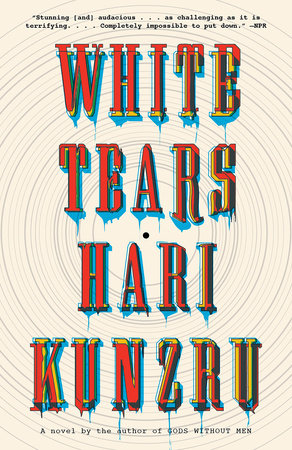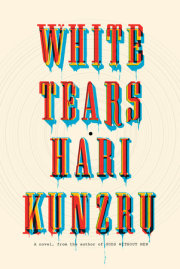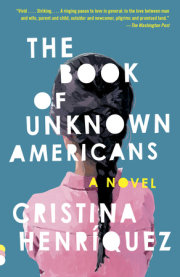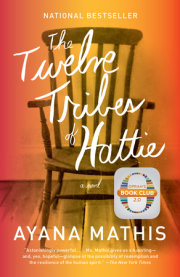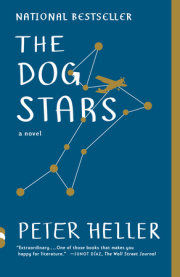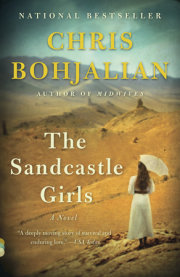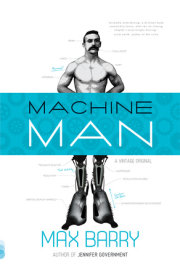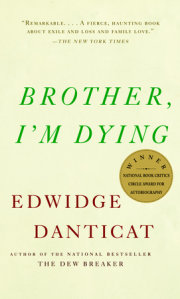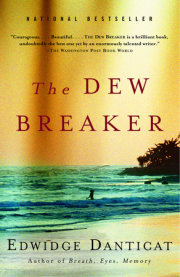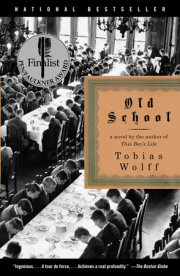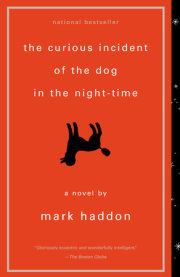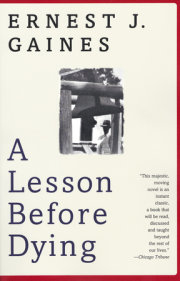Kunzru / WHITE TEARS
▼
That summer I would ride my bike over the bridge, lock it up in front of one of the bars on Orchard Street and drift through the city on foot, recording. People and places. Sidewalk smokers, lover’s quarrels, drug deals. I wanted to store the world and play it back just as I’d found it, without change or addition. I collected audio of thunderstorms, music coming out of cars, the subway trains rumbling underfoot; it was all reality, a quality I had lately begun to crave, as if I were deficient in some necessary vitamin or mineral. I had a binaural setup, two little mics in my ears that looked like headphones, a portable recorder clipped to my belt under my shirt. It was discreet. No one ever noticed. I could roam where I liked and then ride home and listen back through Carter’s thousand-dollar headphones at the studio. There were always phenomena I hadn’t registered, pockets of sound I’d moved through without knowing.
Every sound wave has a physiological effect, every vibration. I once heard a field recording of a woman singing, sitting on a porch. You could hear her foot tapping, keeping time. You could hear the creak of her rocking chair, the crickets in the trees. You could tell it was evening because of the crickets. I felt I was slipping, that if I wasn’t careful I’d lose my grip on the present and find myself back there, seventy or eighty years in the past. The rough board floor, the overhang of the roof, her voice traveling through the moist heavy air to the diaphragm of the microphone, its sound converted into electrical energy, frozen, then the whole process reversed, electricity moving a speaker cone, sound spilling into my ears and connecting me to that long-ago time and place. I could feel it flow, that voice, inhabiting the cavities of my body, displacing the present like water filling a cistern.
I heard Charlie Shaw on one of those recording walks. It was evening. I don’t remember why I’d gone out. Perhaps I couldn’t sleep—that happened. Perhaps I just needed to be outside or spend some time on my own. I often felt claustrophobic after long sessions; we could spend twelve hours in the studio without coming up for air. It was hot, the stifling New York heat that empties the city on July and August weekends. My shirt was clinging to my back. Passers-by were sheened in sweat, everyone desperate for the weather to break. I was recording by the chess tables in Washington Square. A guy called PJ, evidently the home favorite, was playing another man whose name I didn’t catch. They’d drawn a little crowd. There was money on the table. A bottle was being passed around.
PJ was one of the hustlers who sit at those tables day in day out, playing all-comers for ten bucks a time. He was a flabby white man in his fifties or sixties with thick glasses and several plastic bags of nameless crap stashed under the bench. The other player was skinny and black, hard to say how old because his face was hidden under a baseball cap. He wore a clean white undershirt and baggy blue jeans. His bare arms were painfully thin, like two twists of fuse wire. This man was taking his time over his moves, enough for some of the onlookers to be muttering and telling him to make up his mind. He ignored them. Unlike PJ, who was chatting to his buddies, he kept his head down and seemed absorbed in the game. He was a good player and soon he forced PJ to give up a knight, then his queen. There goes my rent money, said PJ to anyone who’d listen. He was stuck on the phrase, repeating it until it became a tic. Each bad move: there goes my rent money, there it goes. Something about the stranger was making the spectators nervous too. He would reach over the table, settle his long fingers on a piece, move it, then suddenly bring his palm slapping down on the clock. Each time he did it, an audible flinch traveled through the crowd. Coughing, keys fondled in pockets. He was killing PJ, showing no mercy. They didn’t like it.
Mate in two, said the thin man, almost under his breath. Around the board, people fell silent. PJ nodded glumly and knocked down his king with a forefinger. Shoot, he said, now what am I going to do? As his friends gathered around to commiserate, the stranger counted his winnings, a wad of small bills. I was already turning away when I heard him sing. It was a blues, just a line.
Believe I buy a graveyard of my own, he sang. Then he repeated it.
Believe I buy me a graveyard of my ownOn the audio, I can hear the change in the position of my head, the mics over each ear picking up a slightly different range as I swing round to listen. I don’t know how to explain what happens next. My memory is clear. There was a skater, a girl. You can hear the rumble of a deck, but it’s in the background. I distinctly remember turning to watch her. I saw long black hair, tattooed sleeves, a nice ass in cutoffs, weaving between dog walkers. How would I know that if I hadn’t turned? But the audio shows I didn’t. The singer remains in the same spot. I remember that when I turned back, the game had broken up. It felt strange. It had only taken a few seconds for the girl to pass, but already the players and spectators were gone, the tables completely deserted. At the time, I didn’t think too much about it. I was hungry, so I walked over to Sixth Avenue to get a slice.
▼
We were on the verge of being famous. Bands wanted the sound we could make. We were booked months into the future and I, for one, could not have been more surprised. One day I woke up and there I was, twenty-five years old, in New York City, and cool. I’d never been cool before, not at high school, not at the liberal arts college upstate where Carter and I met. He was cool. Blond dreadlocks, intricate tattoos, a trust fund he didn’t hesitate to use to further the cause of maximum good times. He had the best collection of vinyl records, the best drugs. He’d traveled, and not just to high-tone places with his parents. He’d hiked in Nepal, driven a bus along the Skeleton Coast in Namibia looking for surf. I was a suburban kid, out of my depth even on our little campus in the middle of nowhere, with its toytown Main Street, its atmosphere of sheltered rehearsal for the real world.
My family didn’t call it by a medical name, but in my teens I had some kind of break or event. After my mom died, my dad and I discovered we had nothing to say to each other. He taught high school physics and was preoccupied with the problems of my kid brother, who was rebelling in a conventional cry-for-help way, smoking weed and shoplifting. It was easier for him not to notice that I was sliding too. So what if I didn’t want to talk to him? One less person taking up his time. I was allowed to get on with it, whatever it was. Losing my mind. For six months, I didn’t go to school, didn’t even go outside. I only left my room on late-night missions to kitchen and bathroom, scuttling back and forth like a cockroach.
At the time it suited me. Four walls. I used to lie on the carpet with my laptop and a keyboard and a battered old mic, making loops of my breathing, of the sound of the floorboards creaking as my dad and my brother walked around outside the door. I’d record these small noises and fool around with them—making phases, pitching them up and down. I was trying to hear something in particular, a phenomenon I was sure existed: a hidden sound that lay underneath the everyday sounds I could hear without trying. Sure enough, after months of obsessive listening, a sound did make its presence known, but it wasn’t the one I’d hoped for. No pure high Buddha tone, no aural white light. I began to hear the past, the ambience of the room as it had been ten years previously, then twenty years, then fifty. The footsteps in the hall didn’t belong to my dad or my brother. They belonged to someone else.
Getting back from that took me a while.
By the time I went to college I was no more than averagely introverted, but I was still a weird kid, no doubt. It took Carter Wallace to pull me out of my cockroach hole. Everyone wanted to be his friend and no one much wanted to be mine, which was why I was alone one day on the lawn in front of the band shell, holding a directional mic mounted in a homemade parabolic reflector, a configuration that was allowing me to listen, with impressive clarity, to conversations taking place all the way at the other end of the lawn by the library. I was eavesdropping on a picnic, a bunch of drama students updating each other on the gossip, shrieking with attention-seeking laughter every thirty to forty-five seconds, loud enough to cause clipping. Clearly what I was doing was objectively creepy. I didn’t much care. Fuck humanity, was my basic position at that point. The conversation was banal: my work your ex incredibly moving hooked up needs to check his privilege blah blah blah. For my purposes, the content was irrelevant. It was just a sound source, so I could test the equipment. It might as well have been birdsong. I was really happy that the reflector—which I’d made myself out of an old satellite dish—was working so well. I lowered the gain and the meter stopped peaking when the people laughed. Just then, I felt a touch on my shoulder and found Carter standing behind me with a stoned half-smile on his face.
I knew who he was, of course. Blond beard plaited into a sort of fashionable rope, no shirt and a tattoo of Mexican calaveras on his chest. I assumed, with a sinking feeling, that this hipster Jesus was something to do with the trendy crowd of picnickers and was about to kick my ass for spying on his girlfriend, something of that kind. Instead he asked me about the reflector and seemed to understand at least some of the technical language I used in my explanation. I found myself giving him the headphones so he could listen. He told me the reflector was “sick,” and though this was hardly an incisive remark, it made me feel as if I’d won an award. Then, to my frank astonishment, he suggested we go back to his dorm room and listen to music.
At that time I had strict rules about the kind of music I would listen to. I wanted to avoid slippage. Old songs made me feel nervous. Also old recordings. I wanted to be one hundred percent forwardfacing, moving into tomorrow at top speed. I’d grown up listening to a lot of seventies progressive rock, songs about space travel and chivalry with frequent changes of time-signature and bombastic effects. As a teenager it had seemed superior to me, evidence of my intelligence. I had begun to listen to sixties psych and garage, inching backwards through the years, but at a certain point, I’d decided there were certain echoes I couldn’t afford to hear, so I made a run for it, away from human history and its dark places, into techno, the aural city on the hill. Here was a shiny sound-world made of pure electronic tones, in which I could float free of all context, cocooned in the reassurance that yesterday was long gone, or perhaps never existed at all.
When I went to Carter’s room that afternoon, I hadn’t voluntarily listened to the sound of a guitar for three years, but I was so in awe of him that I broke my rules. We sat on his bed and he played me records. Vinyl records, old and expensive, lovingly dusted with an antistatic cloth and placed on a deck positioned on a paving slab to isolate it from vibration. His setup was impressive. All his decisions had been technically sound and the equipment was peerless. The turntable was connected to twin valve amplifiers, fifty years old or more, engineered to specifications that would be considered excessive today. They in turn were connected to a pair of British studio monitors that, he boasted, had once hung in the control room at Abbey Road. Until then I had held a low opinion of the audiophile fetish for analog equipment. I considered it sentimental. Carter completely changed my mind.
At first I was solely preoccupied with audio quality. I appreciated the range and dynamics of the reproduction, without paying much attention to Carter’s music taste. Gradually I noticed that everything he played was by black musicians. Many different styles, but always black music, most of it completely unfamiliar to me. I began to listen with increasing pleasure. Carter didn’t so much play me his record collection as narrate it. He began with Jamaican dub. From there, he introduced ska and soca, soul and RnB, seventies Afrobeat and eighties electro. He spun early hip hop and Free Jazz and countless regional flavors of Bass and Juke music. Chicago, London, Lagos, Miami. I had not known there was such music.
Over the next weeks and months, Carter taught me to worship— it’s not too strong a word—what he worshipped. He listened exclusively to black music because, he said, it was more intense and authentic than anything made by white people. He spoke as if “white people” were the name of an army or a gang, some organization to which he didn’t belong. I paid no mind to his garbled explanation of the source of this black intensity. The sound was good, and I’d noticed something extraordinary that was occupying most of my attention. I was listening to songs that had been recorded twenty years before I was born, and they had no ill-effect on me. There was no backwards pull, no sensation of vertigo. I forgot what it was I’d been scared of. I let it all go. I could not remember the last time I had felt so happy and carefree.
In between marathon listening sessions, Carter initiated me into the campus party scene, which I’d previously found opaque and threatening. As a DJ, he had quasi-celebrity status, arriving in rooms through a thicket of daps and hugs and fist bumps. Soon I was helping him out, setting up, troubleshooting the sound system. I’d hang back behind the decks as he spun his vinyl-only set, watching girls making fuck-me eyes at him and their jealous boyfriends pretending they didn’t care. There was such a need to connect with him, to receive the blessing of his attention. None of the cool kids could work out why I was the one to carry the conquering hero’s record box. I was a loser, who dressed (as I was once told) like a “homeless computer scientist.” They didn’t understand Carter’s obsessive commitment to music. He didn’t really care about anything else. I understood that and they didn’t. That was why it was me and not them.
Carter rarely talked about his family. What I knew, I had to piece together from campus gossip and the internet. He had an older brother and sister and it was easy enough to search his dad, a big Republican donor who appeared in news photographs with senators and members of the Bush clan. Perhaps not coincidentally, the Wallace family company, a behemoth with tentacles in construction, logistics and energy, had expanded since 9/11, helping America prevail in the War on Terror. Toilet blocks in Afghanistan. Airstrips and PX’s. Known these days as the Wallace Magnolia Group, they supplied earthmoving equipment, built freeways, laid pipelines. Carter’s dead aunt’s name was on a new lecture theater, which, given his near-total lack of interest in academic work, may have been the price of his admission to our not-quite-Ivy school. Carter knew what the Occupy crowd said about him, the no-bloodfor-oil crowd. He told people he’d been disinherited, but that wasn’t strictly true.
Together we went on record-buying trips to Cleveland and Detroit. He had a 1967 Ford Galaxie, Candy Apple red, which handled like a boat and drew him into conversations with admiring gas station attendants and diner patrons. We drove that ridiculous car round a circuit of thrift stores and basement record dealers, looking for sixties soul on local labels like Fortune and Hot Wax, techno twelves on Metroplex and Transmat and every other style in between. We took chances on weird private press releases that usually turned out to be lounge singers cranking out Sinatra covers or school bands doing shaky versions of seventies bubblegum hits. We found gems (a cache of mint BYG/Actuel free jazz albums still in their shrink wrap, a blue copy of the UR “Z Record”) and dropped money on turkeys, bad records with one good track, rare records that turned out to have no good tracks at all.
Copyright © 2017 by Hari Kunzru. All rights reserved. No part of this excerpt may be reproduced or reprinted without permission in writing from the publisher.

